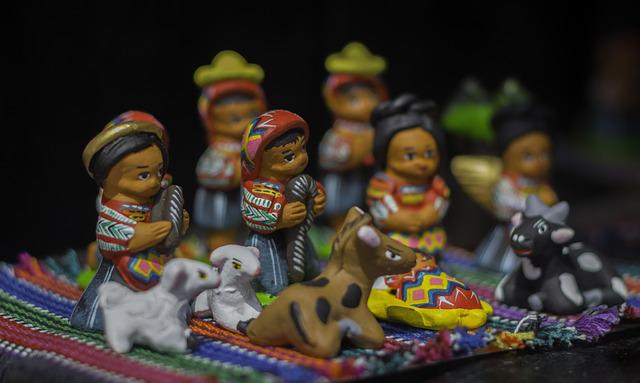This article contains information on all the Indigenous Knowledge Systems in South Africa.

South Africa has a rich ethnic and cultural diversity, and there is no doubt that its biodiversity is of global significance. The country is well known for its Indigenous-knowledge, especially in the areas of Agricultural plants (IK).
Oftentimes, Indigenous knowledge is used interchangeably with traditional knowledge. Although they are both related and linked, one is a subset of the other with few distinctions.
Indigenous Knowledge System (IKS) can be defined as the knowledge and practices that an indigenous/ local community develops over generations of living in a particular environment, prior to the advent of modern technology. This includes all forms of knowledge, skills, practices and beliefs in areas of culture, religion, etc, that enables a community to achieve sustainable living in their immediate environment.
For instance, in South Africa, some ethnic groups are known to have a cultural and spiritual connection with the use of certain plants as a source of traditional medicine.
In terms of Indigenous knowledge systems, the Zulu, which is a subgroup of the Nguni tribe, have a practice that originated from the use of certain plants in rituals. Since some of these practices originated from and are peculiar to the Zulus, it is an indigenous knowledge.
On the other hand, the traditional knowledge system is a combination of indigenous knowledge systems. In other words, indigenous knowledge systems from different localities make up traditional knowledge systems. The local knowledge, skill and technology that people used during the past to make their lives easier and comfortable are known as traditional knowledge.
Many widely used products, such as plant-based medicines, health products and cosmetics, and even some modern practices, are derived from indigenous knowledge. Indigenous knowledge systems can make a significant contribution to sustainable development.
Indigenous knowledge systems in South Africa have come a long way but sadly they are being overlooked as valuable sciences and being misrepresented by Western experts, who for a long time saw themselves as the only suitable custodians of experiences, ideals, history and knowledge.
Despite this conflict with accepting indigenous knowledge, the fact still remains that some of these western scholars still fall back on these indigenous practices.
Although, it is widely known there are a series of lessons to be learned from indigenous knowledge systems, there is little or no protection for indigenous knowledge within international law and as such it is vulnerable to being discarded, and abused.
As more intellectuals arise in South Africa, the push to preserve these knowledge systems heightens. In order to protect Indigenous Knowledge Systems (IKS) an IKS Policy was adopted by the Cabinet in 2004. The policy shows the need to establish a system of recording these indigenous practices such that communities and individual indigenous knowledge holders can record their knowledge for future societal benefits and growth. However, there are numerous issues regarding the recording of indigenous knowledge and its transference to other localities. In response to this challenge, the National Indigenous Knowledge Systems Office (NIKSO), set up the National Recordal System (NRS) in 2013. The NRS collaborates with communities throughout South Africa to record indigenous knowledge relating to African traditional medicine, indigenous foods, farming practices and crafts.
SOME INDIGENOUS KNOWLEDGE IN SOUTH AFRICA
1. Medicine
South Africans are blessed with numerous plants; some of these plants they have used from generation to generation for different purposes. However, these plants have cultural and spiritual value to different South African ethnic groups.
For over a century, Umhlonyane has been commonly used by sangomas for a variety of reasons including to boost the immune system, for patients with illnesses that attack the respiratory system, and a host of other uses.
Although not scientifically proven, this African herb helped many during the global pandemic when South African health sector was non-functional.
2. IKS for Energy generation
Prior to the discovery of fossil fuels and expensive Western renewable energy solutions, indigenous methods involving the use of animal and food waste were used to create cheaper and sustainable biogas.
3. Agricultural Practice
For many generations, rural women of Kwazulu Natal have been pruning the tips of pumpkin vines. This practice was used to increase the size of the pumpkins harvested. However, there is also another belief that has it that to get maximum benefit from this practice, pruning must be done by a person with extra fingers or toes (physical deformity). This indigenous knowledge is supported by scientific proofs. However, the belief that a deformed person can have the ability to influence yield has no scientific backing.
4. Other Indigenous Practices
The idea of “Apprenticeship” originated from Traditional Knowledge, which is referred by the Zulus as “ukuthunywa or thuma” In English it is translated as “running errands” This practice has been an important tool for sharing knowledge. Most children became farmers from this practice by observation while older people performed certain tasks.
CONCLUSION
Indigenous Knowledge Systems in South Africa have come a decade too far for oblivion. While science strives so hard to disprove indigenous knowledge, the fact still remains that most of these practices sustained many generations and still are.
Indigenous Knowledge Systems can not be outrightly discarded in South Africa but can only be preserved and improved on to further boost the economy.





